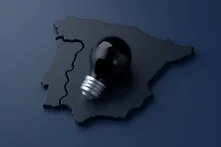In France, government disinformation is a rare phenomenon and the truth is swiftly revealed, thanks in particular to the work of certain media sources published information. Although it is not widespread, all manipulation has its consequences, gradually increasing the people’s distrust of institutions.

This commentary is part of our dossier "Drowning in disinformation", which explores how homegrown state-sponsored disinformation threatens EU democracy.
Disinformation can harm the government
In France, any government lie is usually short lived. In the Benalla trial in Paris at the end of September, Ismaël Emelien, former adviser to French President Emmanuel Macron, had some explaining to do about a video that was cobbled together hastily in 2018 in response to revelations published in Le Monde. The French daily newspaper had identified presidential bodyguard Alexandre Benalla in another video, wearing a police armband and beating up two protesters during the demonstrations of 1 May.
Images from the surveillance cameras of the police headquarters were then illegally extracted and passed onto the presidential adviser, who had them made into footage showing a different version of the arrest of the demonstrators, aiming to put the images of Alexandre Benalla’s actions into a different light. The video was sent to a relay of La République en Marche (LREM), the President’s party, then posted to an anonymous Twitter account, @Frenchpolitics, before being taken down. Hesitation, then backpedalling, the manipulation was not of long duration, but has now caused its creator the embarrassment of having to appear in court as a witness in the Benalla case.
In France, there is very little scope for orchestrated disinformation. Modern times, furthermore, make it even harder for lies to thrive, as they are swiftly debunked by media fact-checking services, independent research bodies and citizens. Some have even become seasonal events, which would be amusing if they were not deployed for electioneering purposes. One example of these is the idea of families rushing out to buy flat-screen televisions with their State back-to-school allowance.
Most recently, it was the national education minister, Jean-Michel Blanquer, who alleged this misuse of the benefit, before being caught in his lie: first by several studies of the French family benefit office (Caisse d’allocation familiale, CAF), which showed that almost all recipients did indeed use the money to buy school supplies, then by former health minister, Agnès Buzin (both links available in French only). “Jean-Michel Blanquer vilified the poorest families to win over the Right. But it was a flawed approach. The strategy is not viable, because lies are quickly rumbled. The Minister comes out of the affair weakened”, argues Philippe Moreau Chevrolet of MCBG Conseil.
Some lies can be expensive, as was the case with the episode of surgical masks at the height of the COVID-19 pandemic. In 2020, the government argued that masks would offer no benefit to the population in general. Its spokesperson, Sibeth Ndiaye, announced in March that “the people of France will not be able to buy masks in pharmacies, because they are not necessary unless you are ill”. In actual fact, the lie was designed to cover up a shortage of masks in France, but this was rapidly revealed by media investigations. “The incident destroyed confidence in the government, sparking a sense of incompetence during the crisis”, Philippe Moreau Chevrolet stresses.
In a country in which mistrust of institutions is already high, the lie is likely to have helped to fuel conspiracy theorist rhetoric. Moreau Chevrolet qualifies this by pointing out that “when the government of a country lies, they don’t do it for fun. They don’t do it out of sadism. Lying is a complicated thing. About the masks, the government wanted to be left alone to get on with its work in peace”. Once again, however, the stunt failed to stand up to the scrutiny of the social networks, in the midst of a global pandemic in which information sources went beyond the French framework alone.
Militant manipulation on social networks
On these same social networks, astrosurfing – the act of artificially helping certain tweets or hashtags to go viral – on the part of the LREM is unlikely to remain unnoticed. In April 2019, Médiapart got together with IT security researcher Baptiste Robert to analyse the traffic of the LREM community on Twitter, over a weekend of Yellow Vest protest meetings and coinciding with the launch of the European elections campaign. The researcher identified a traffic manipulation coefficient –based on the proportion of retweets, number of actions per user and the proportion of tweets by the 50 most active accounts – in the order of 16, which is twice that observed for normal activity. Whilst the investigation flagged up orchestration by the party, it concluded that this manipulation campaign had had little effect.
Social network expert Fabrice Epelboin has identified a category of LREM activists going it alone: “during the presidential election campaign, these activists were pushing a particular message on social networks and this was done with good intentions. But then, many were simply dropped in the middle of the campaign. They saw that their messages were not getting through and that LREM just served Macron, which led to frustration. This basis took on a form of autonomy”. These activists set up multiple Twitter accounts and spread their message without coordination, but with a degree of aggression. But they were swiftly taken down, having been identified as hate accounts.
“Political parties exploiting social networks is nothing new. The centrists came late to the party, but militant methods have been placed in the hands of inexperienced individuals”. This means that astrosurfing on the part of LREM has not yet achieved the level of efficiency of the Russian or Chinese authoritarian regimes, or of Donald Trump’s campaigns. And French democracy continues to resist being lied to by those who govern.


